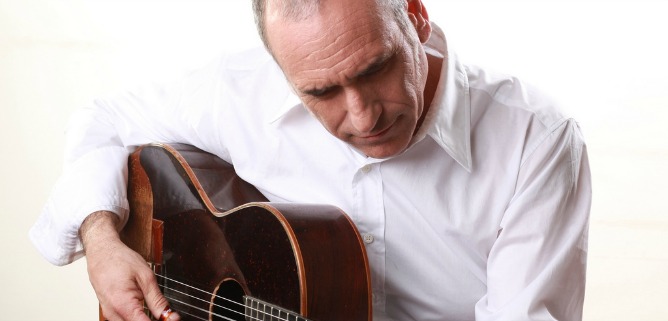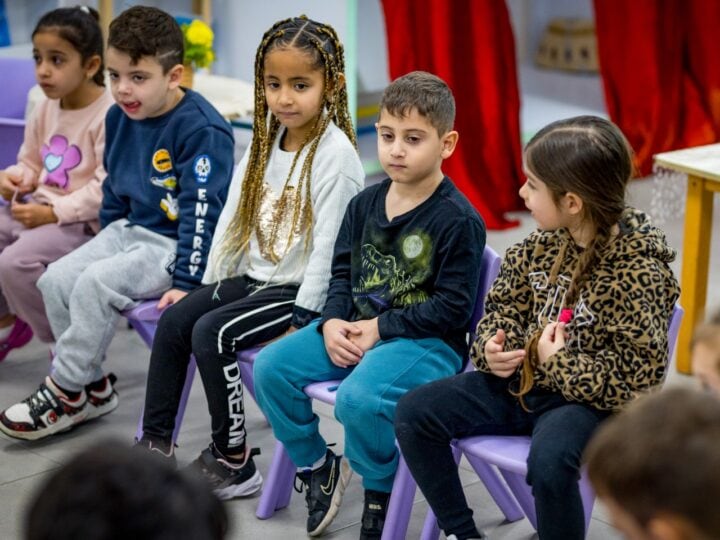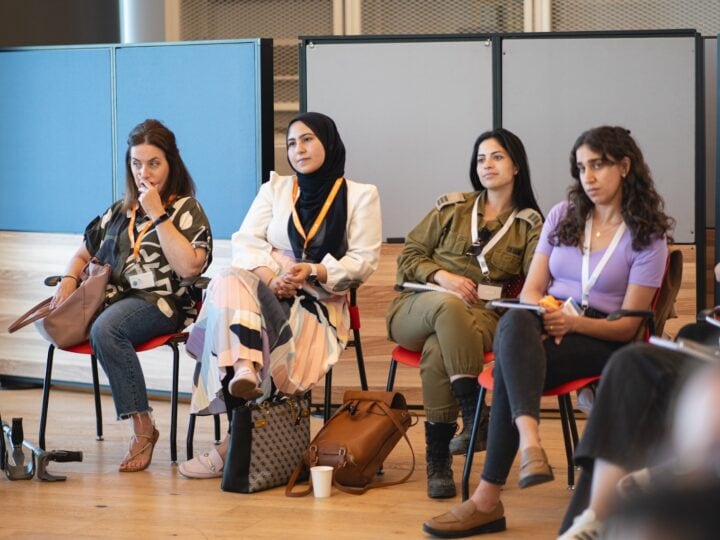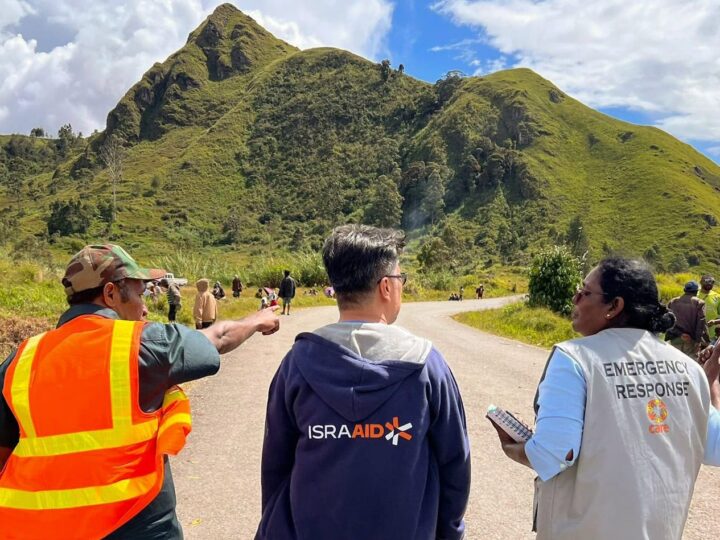Veteran Israeli performer David Broza figured that if you can buy a Picasso on the Internet, you can also finance an album on the Internet.
So he took the highly unconventional route of producing his first Israeli album in nine years, “Safa Shlishit” (“Third Language”), entirely via the site Kickstarter. Released last summer, his 28th CD became one of the top five music projects ever kick-started online.
“I am a very down-to-earth singer-songwriter and not a techie, yet I went for the highest technology to do this project and I succeeded,” says Broza, 56, “despite the fact that it’s an album in Hebrew by an older artist, so it’s against all odds. It just shows you that you need to have a focus.”
That focus only sharpened when, fresh out of the Israeli army, he turned into an accidental overnight sensation with “Yihye Tov” (“It Will be Good”), written with poet Yonatan Geffen on the eve of the 1977 peace negotiations with Egypt.
Born in Haifa and educated in Israel, England and Spain, Broza came back to Israel at 18 to do his military service after six years in Madrid. He’d intended to be a painter, but his café guitar-strumming attracted attention. What followed were 17 years of commuting between Tel Aviv and New York.
“After ‘Yihye Tov’ broke all expectations, it was time to pause and look deeper and not just be a ‘hit man’ taking success for granted,” he tells ISRAEL21c. “Unintentionally I got there, and then when it was intentional it was important for me to expand my horizons, to learn more about music and its roots. New York was the natural base for researching the core of the music I was playing.”
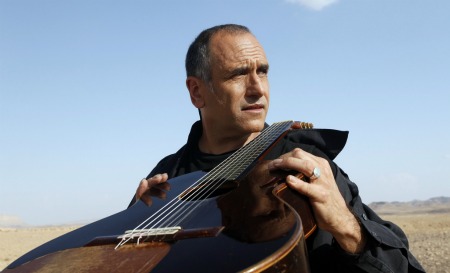
Yet even after raising three children in a New Jersey suburb, and spending another three years in Madrid afterward, Broza never considered himself anything but Israeli. Tel Aviv is where he always returns home from performing across the globe, and his kids chose to relocate to Israel as adults.
Advocate for peace and the disabled
Broza’s grandfather co-founded the Arab-Israeli village Neve Shalom-Wahat Al-Salam (The Oasis of Peace), and his father helped found the Israel Sports Center for the Disabled in Ramat Gan, where Broza has been volunteering since the age of seven.
Taking a page from these two role models, Broza was one of the original members of Peace Now and toured the Middle East with Jordanian musician Hani Naser prior to the 1994 Jordan-Israel peace treaty.
He wrote “Together” with Ramsey McLean as the theme song for the 50th anniversary of UNICEF (the United Nations Children’s Fund) in 1996. They recorded it backed by Arab and Jewish children’s choirs.
In 2006, Broza and Arab instrumentalist Said Murad won an award from Search for Common Ground for their song “Belibi” (“In My Heart”). “We wrote it together as a love song to the country that is so dear to both of us,” says Broza.
At a 2009 Tel Aviv concert, King Juan Carlos I bestowed a Spanish Royal Medal of Honor on Broza in recognition of the singer’s contributions to Israel-Spain relations and his promotion of tolerance. That same year, Broza recorded the song “V’ulai” (“And Perhaps”) as a benefit for the Breast Cancer Research Foundation.
He’s now working to create and fundraise for a circus for the deaf and blind at Nalaga’at Center, Israel’s unique deaf-blind theater troupe.
“This is my other passion. It gives me a great thrill to find good people dedicated to improving facilities offered to the handicapped,” Broza says. “We are very innovative with that in Israel.”
He says that whatever criticism he has for his homeland is voiced just as a son might voice criticism of his parents. “Israel is a very cool place. After everything I’ve seen, I’m a loud voice in support of what Israel has to offer. I’m also a critic, and that means I want to improve something I love and care about.”
Trilingual
Broza has recorded in three languages — hence the name of his newest release. “My fixation from 22 years old was to be able to identify my Israeli music and produce it in Hebrew, Spanish or English to communicate with local audiences everywhere,” Broza says.
Speaking from New York, where he recently married Israeli-American fashion designer Nili Lotan, Broza says his new album is different not only in how it was financed but also in content. He wrote the lyrics for its 15 songs, whereas he traditionally sets the words of other poets to music.
His 2010 album, “Night Dawn: The Unpublished Poetry of Townes Van Zandt,” came out of an unexpected windfall: Van Zandt, a noted American songwriter, had shared the stage with Broza in 1994. When he died in 1997, his widow informed Broza that he was to inherit all of the Texan’s unpublished poetry.
American audiences may also be familiar with “David Broza at Masada,” a 2007 DVD featuring Jackson Browne and Shawn Colvin. This is one of many stages across the world that Broza, a multi-platinum artist, continues to grace in the company of his Spanish flamenco band or his American jazz ensemble.
“I’m trying to get to places where there’s not a chance Israeli music will ever be played,” he says. “I aspire to play in all cultural centers of the world, because I’ve kind of mastered everything I meant to master.”
Broza will soon launch David and the Lion’s Den, a project set in East Jerusalem. “I’m hoping it may inspire some people to do more co-productions on the artistic level.”




